
A woman whose husband and two children are dwarfs has hit back at cruel strangers who point, laugh and take photos of the family when they are out together.
At 5ft 4in, Heather Smith, 34, towers over her husband Paul, 40. He is just 4ft tall and, like their children – 3ft 7in Jack, 13 and 3ft 2in Erin, nine – has a form of dwarfism called pseudoachondroplasia.
Sadly, the genetic condition has made the family, from Nottingham, the butt of offensive jibes, like ‘stupid little midget,’ which they try to ignore.
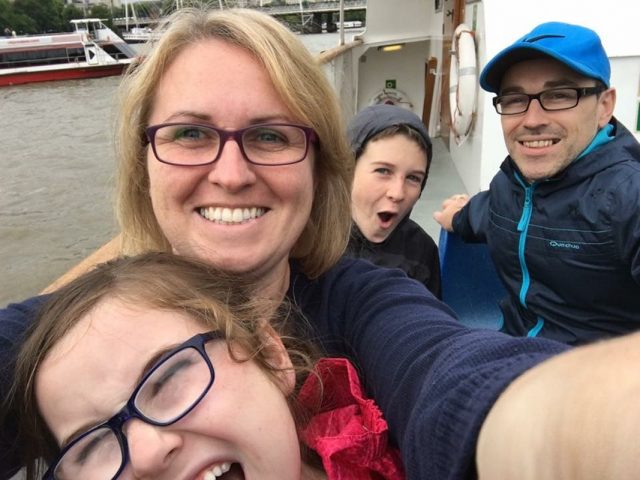 The family out on a boat together in July 2017 (Collect/PA Real Life)
The family out on a boat together in July 2017 (Collect/PA Real Life)
Now, childminder Heather is bravely speaking out about ignorant behaviour and calling for a change in attitudes to dwarfism.
“When we’re out as a family, we get people laughing, pointing and taking pictures. We have to put our blinkers on and just get on with it, but sometimes I can’t help letting people know I can see and hear what they’re doing,” she said.
“There needs to be more acceptance and understanding, so people can get on with their lives – whatever their size. My kids are in constant pain with their condition. They don’t need the additional worry of stepping outside in the morning and being laughed and pointed at.”
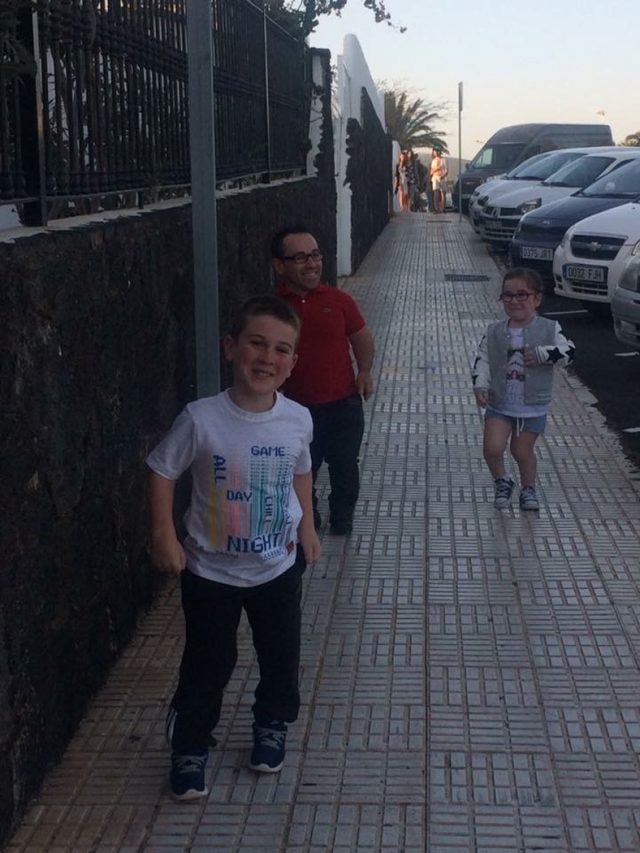 Jack, Paul and Erin on holiday in Lanzarote in February 2017 (Collect/PA Real Life)
Jack, Paul and Erin on holiday in Lanzarote in February 2017 (Collect/PA Real Life)
Heather and Paul, an administration assistant for Boots, first met in Majorca, Spain in 2002, where she was working as a holiday rep and he was a DJ.
She had never met anybody with dwarfism before, but said she was completely unfazed by the condition.
“I still thought Paul was a really good-looking man,” she said.
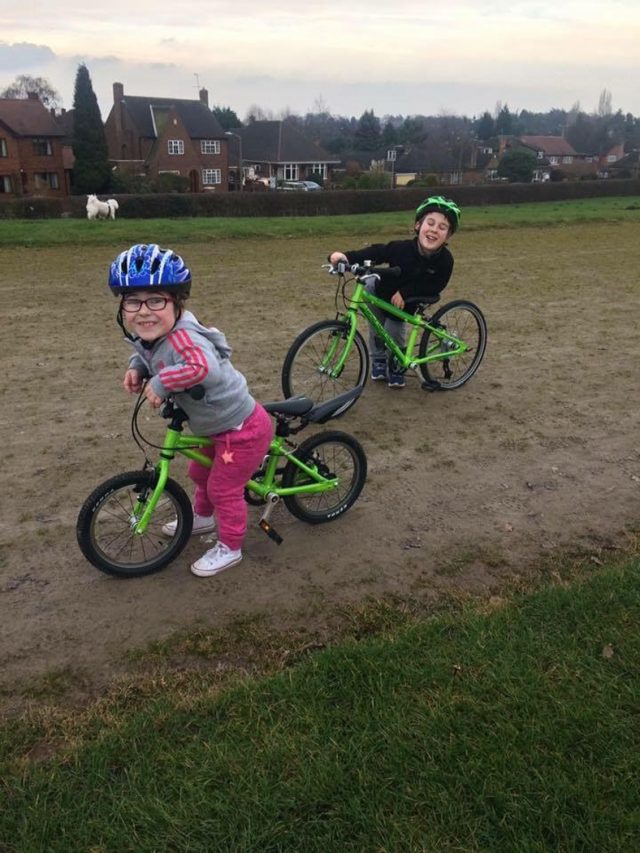 Erin and Jack riding their bikes at their local running track in 2016 (Collect/PA Real Life)
Erin and Jack riding their bikes at their local running track in 2016 (Collect/PA Real Life)
She continued: “Friends and family were very supportive. They’re all happy, easy going people.
“I’ve had some comments, and get inappropriate questions but if people are judgemental then I just cut them out.”
In time, the couple’s thoughts turned to starting a family.
#MembersMonday if you want up to date information and access to events you must become a member of LPUK…https://t.co/avLIyF84X0
— Little People UK (@LPUKOnline) June 26, 2017
As dwarfism is a genetic condition, they knew there was a chance their children would inherit it.
Heather continued: “Paul lived his life to the full, had a job and socialised happily with his friends. He was happy and knowing that he’d always lived a normal life meant we didn’t worry too much about whether the children would be affected.
“It was only once they were born that the reality of the condition, with all the surgeries they faced, hit me.”
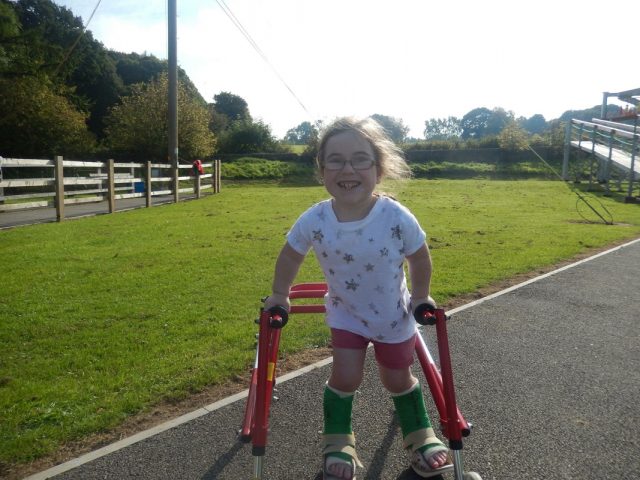 Erin after having ankle surgery in 2015 on an activity weekend with Little People UK (Collect/PA Real Life)
Erin after having ankle surgery in 2015 on an activity weekend with Little People UK (Collect/PA Real Life)
The particular form of dwarfism the family, who support the charity Little People UK, have is not generally discovered until children are around two years old, so all Heather’s scans during pregnancy looked normal.
But, when the children began to walk with a waddled gait, X-Rays revealed they had both inherited the condition.
Affecting their skeletons, it means they have restricted growth and hip stiffness, that will most likely mean them needing replacements at some point – although Paul has made it to 40 without having one. They also have loose fingers and wrists, meaning their grip is poor.
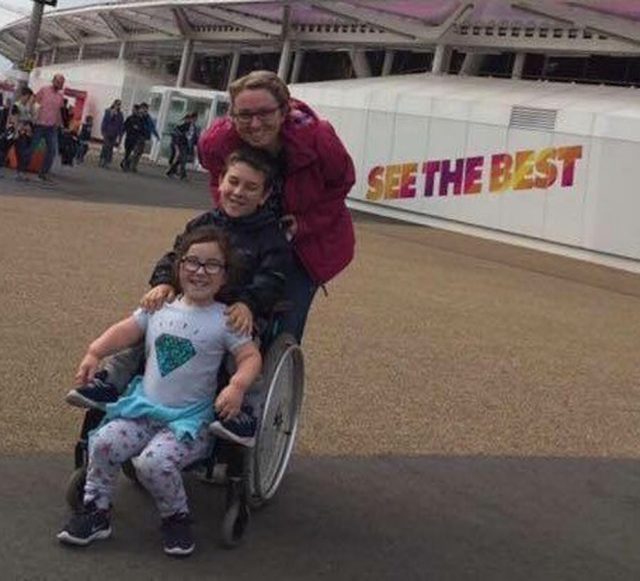 Heather, Jack and Erin the World Para Athletic championships in London (Collect/PA Real Life)
Heather, Jack and Erin the World Para Athletic championships in London (Collect/PA Real Life)
They need wheelchairs for travelling over long distances and have had a string of operations to straighten their legs, which will continue until they stop growing in their teens.
“Though they all have the same form of dwarfism, it manifests itself differently in each of them,” said Heather.
“Just like with average people, they’re all individual.”
Host a @JeansforGenes day & transform the lives of severely disabled children in the UK. Sign up > https://t.co/Qx81r5Xi9S #charitytuesday pic.twitter.com/GfmxnuNtZE
— Jeans for Genes (@JeansforGenes) August 8, 2017
Despite facing daily pain, the family keep a positive attitude and lead healthy, active lives.
However, Heather, who is supporting Jeans for Genes Day 2017, which fundraises to transform the lives of those affected by genetic conditions, admitted that bullying is a concern.
She said worries about the children getting older and going out alone, without their parents to protect them.
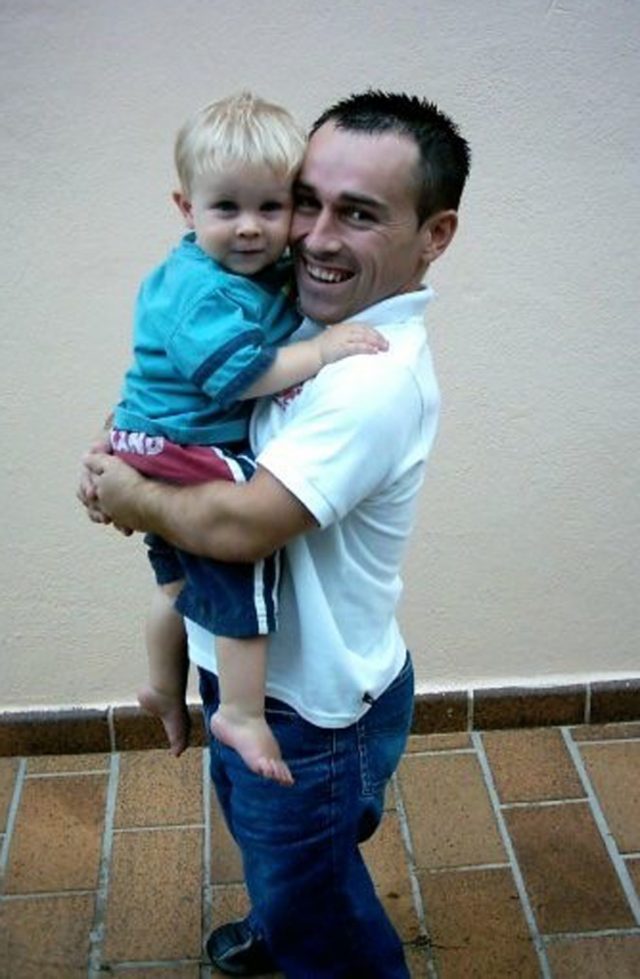 Paul holding Jack when he was around 15 months old (Collect/PA Real Life)
Paul holding Jack when he was around 15 months old (Collect/PA Real Life)
She continued: “Things have been said that upset them. They’ve been called babies at school, or children have held footballs just above Jack’s head so he can’t reach.
“Erin even got called a ‘stupid little midget’ which is an unacceptable word in the dwarf community. I know sometimes children are too young to understand what they’re saying, but we need more education and awareness so that everybody can be accepted.
“Attitudes are starting to change as dwarfism is more visible but there’s still a long way to go.”
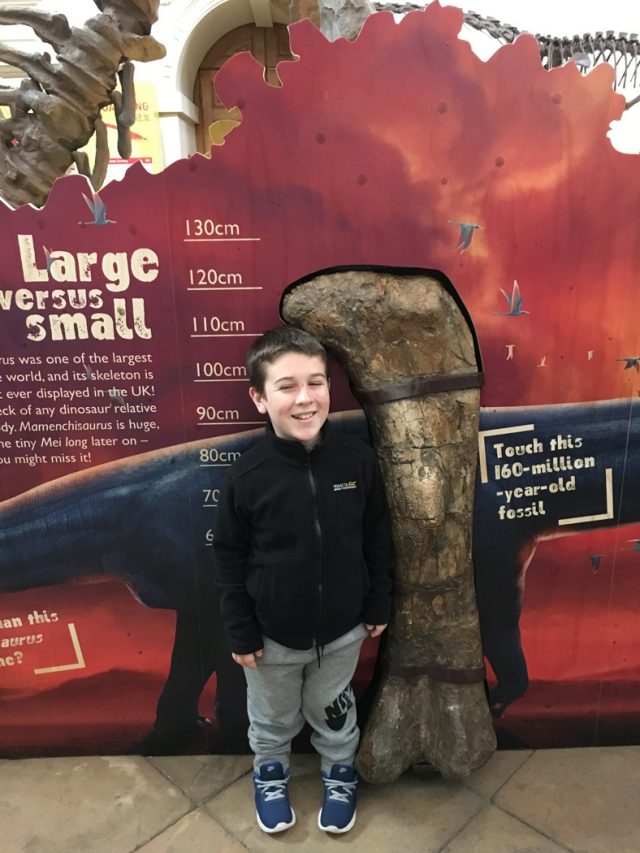 Jack earlier this year at a dinosaur exhibition (Collect/PA Real Life)
Jack earlier this year at a dinosaur exhibition (Collect/PA Real Life)
Jeans for Genes Day 2017 takes place on Friday 22nd September. Sign up for your free fundraising pack now at www.jeansforgenesday.org/


Why are you making commenting on The Herald only available to subscribers?
It should have been a safe space for informed debate, somewhere for readers to discuss issues around the biggest stories of the day, but all too often the below the line comments on most websites have become bogged down by off-topic discussions and abuse.
heraldscotland.com is tackling this problem by allowing only subscribers to comment.
We are doing this to improve the experience for our loyal readers and we believe it will reduce the ability of trolls and troublemakers, who occasionally find their way onto our site, to abuse our journalists and readers. We also hope it will help the comments section fulfil its promise as a part of Scotland's conversation with itself.
We are lucky at The Herald. We are read by an informed, educated readership who can add their knowledge and insights to our stories.
That is invaluable.
We are making the subscriber-only change to support our valued readers, who tell us they don't want the site cluttered up with irrelevant comments, untruths and abuse.
In the past, the journalist’s job was to collect and distribute information to the audience. Technology means that readers can shape a discussion. We look forward to hearing from you on heraldscotland.com
Comments & Moderation
Readers’ comments: You are personally liable for the content of any comments you upload to this website, so please act responsibly. We do not pre-moderate or monitor readers’ comments appearing on our websites, but we do post-moderate in response to complaints we receive or otherwise when a potential problem comes to our attention. You can make a complaint by using the ‘report this post’ link . We may then apply our discretion under the user terms to amend or delete comments.
Post moderation is undertaken full-time 9am-6pm on weekdays, and on a part-time basis outwith those hours.
Read the rules here